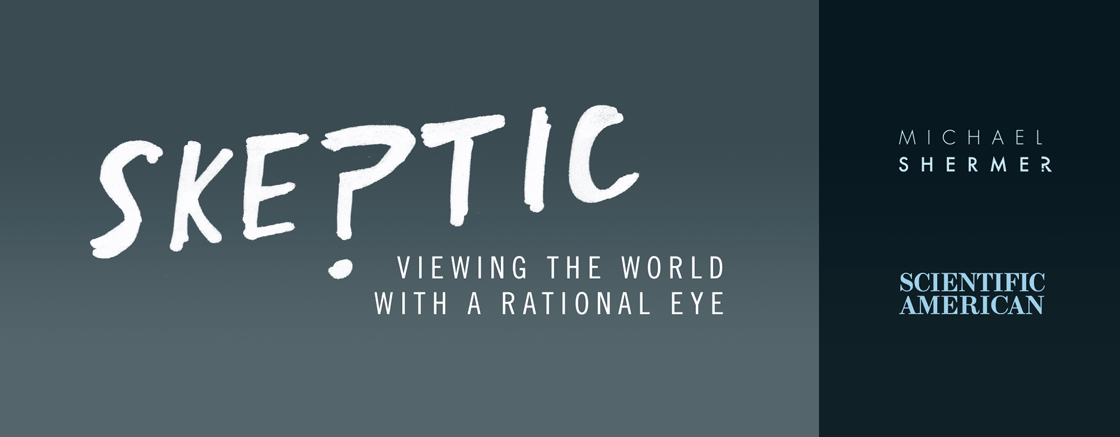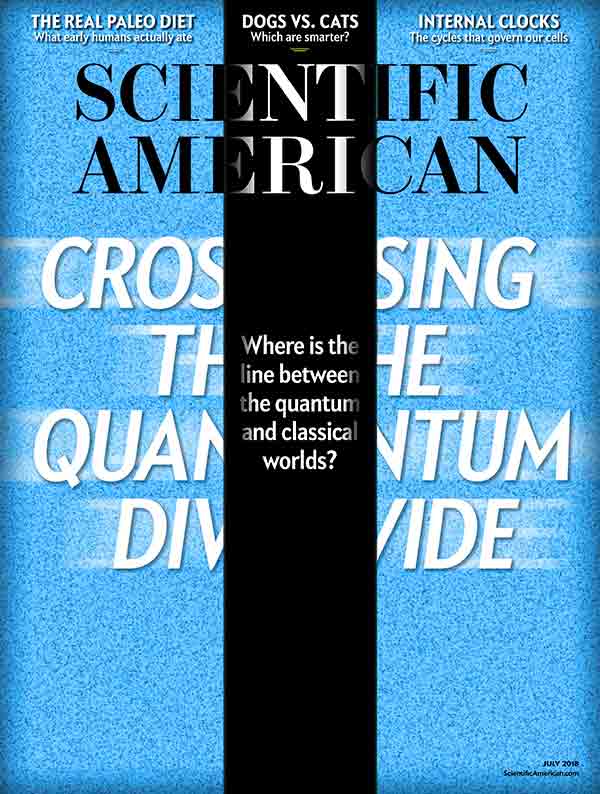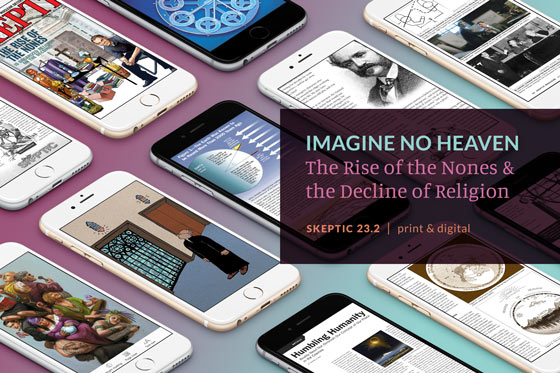In his July 2018 ‘Skeptic’ column for Scientific American, Michael Shermer ponders how, for millennia, the greatest minds of our species have grappled to gain purchase on the vertiginous ontological cliffs of three great mysteries—consciousness, free will and God—without ascending anywhere near the thin air of their peaks.

The Final Mysterians
Are consciousness, free will and God insoluble mysteries?
In 1967 British biologist and Nobel laureate Sir Peter Medawar famously characterized science as, in book title form, The Art of the Soluble. “Good scientists study the most important problems they think they can solve. It is, after all, their professional business to solve problems, not merely to grapple with them,” he wrote.

For millennia, the greatest minds of our species have grappled to gain purchase on the vertiginous ontological cliffs of three great mysteries—consciousness, free will and God—without ascending anywhere near the thin air of their peaks. Unlike other inscrutable problems, such as the structure of the atom, the molecular basis of replication and the causes of human violence, which have witnessed stunning advancements of enlightenment, these three seem to recede ever further away from understanding, even as we race ever faster to catch them in our scientific nets.
Are these “hard” problems, as philosopher David Chalmers characterized consciousness, or are they truly insoluble “mysterian” problems, as philosopher Owen Flanagan designated them (inspired by the 1960s rock group Question Mark and the Mysterians)? The “old mysterians” were dualists who believed in nonmaterial properties, such as the soul, that cannot be explained by natural processes. The “new mysterians,” Flanagan says, contend that consciousness can never be explained because of the limitations of human cognition. I contend that not only consciousness but also free will and God are mysterian problems—not because we are not yet smart enough to solve them but because they can never be solved, not even in principle, relating to how the concepts are conceived in language. Call those of us in this camp the “final mysterians.” […]
Follow Michael Shermer on
Twitter • Facebook • Blog • YouTube










